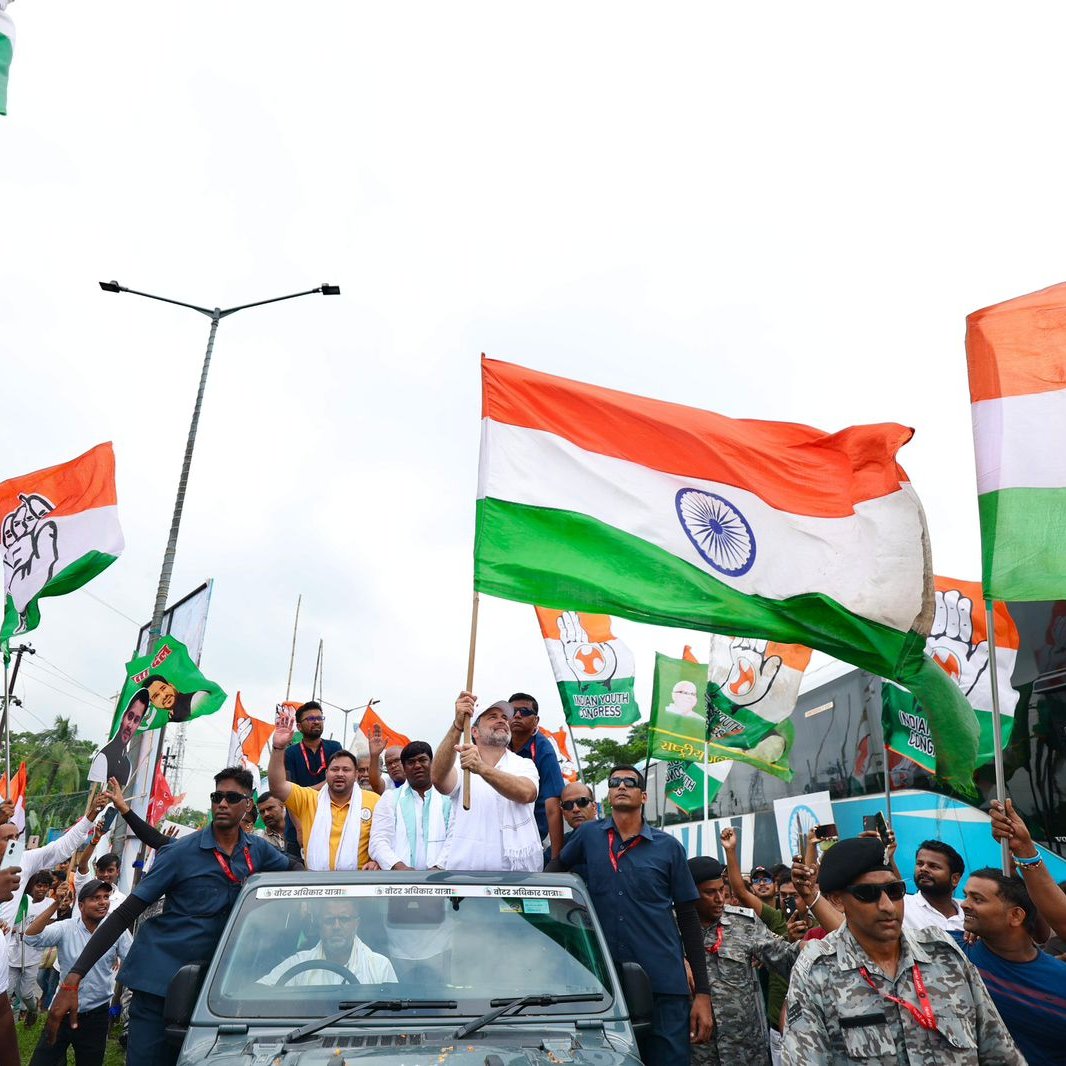Explained: What Happens Now That India's LoP Rahul Gandhi Missed EC's Affidavit Deadline on ‘Vote Theft’ Allegations
The seven-day deadline set by the Election Commission of India (ECI) for Congress MP and India's Leader of Opposition in Lok Sabha Rahul Gandhi to substantiate his allegations of large-scale voter exclusion has lapsed without compliance.
Rahul Gandhi did not submit any signed affidavit or documentary evidence, as was explicitly demanded by Chief Election Commissioner Gyanesh Kumar during a press conference on August 17.
 |
| Image Source: INC India |
As far as the machine-readable voter list is concerned, the Supreme Court has already said in 2019 that this could be a violation of voter privacy.
— All India Radio News (@airnewsalerts) August 17, 2025
- Chief Election Commissioner Gyanesh Kumar#BiharSIR2025 | #ElectionCommission | @ECISVEEP | @SpokespersonECI | #GyaneshKumar pic.twitter.com/L6NLFMYNvS
With no affidavit forthcoming and no apology offered, the legal and institutional implications now hinge not on what has already been done but on what the Election Commission or other authorities may do next.
Importantly, the ECI itself lacks prosecutorial powers and cannot, on its own, initiate criminal proceedings or disqualify a sitting Member of Parliament.
However, that does not rule out consequences under applicable laws -- should a formal complaint or legal proceeding be initiated, either by the Commission or by a third party.
#VoteChori हमारे लोकतंत्र पर Atom Bomb है। pic.twitter.com/jcLvhLPqM6
— Rahul Gandhi (@RahulGandhi) August 7, 2025
Under Rule 20(3)(b) of the Conduct of Elections Rules, 1961, a complainant who is not a registered voter in the constituency in question must file a sworn affidavit if they allege irregularities in the electoral roll.
This provision was specifically invoked by the CEC to underscore that Gandhi, not being a voter in the constituencies he referenced, could not make such serious claims without legally verifying them through a signed declaration.
His failure to do so renders his statements procedurally invalid under electoral law and, by extension, not actionable by election officers.
❌ The statements made are Misleading #ECIFactCheck
— Election Commission of India (@ECISVEEP) August 8, 2025
✅Read in detail in the image given👇 https://t.co/K1sKq1DvbU pic.twitter.com/tdqudyoXU2
That said, procedural invalidity does not by itself trigger penal consequences. For Rahul Gandhi to face legal penalties such as disqualification or criminal liability, further conditions would need to be met.
For instance, if he had filed a false affidavit, he could have been prosecuted under Section 125A of the Representation of the People Act, 1951.
Since no affidavit was submitted, that provision does not apply. Similarly, the ECI could consider filing a criminal defamation case under Section 499 of the Indian Penal Code if it deems his remarks defamatory to the institution.
While no such move has been made so far, the possibility remains open depending on the Commission’s internal assessment.
On the matter of disqualification, the legal threshold is even higher.
Disqualification under Section 8 of the Representation of the People Act requires a criminal conviction -- typically with a sentence of two years or more -- for specific offences such as promoting enmity, bribery, or filing false affidavits.
At present, Gandhi has not been charged, let alone convicted, in relation to the “vote theft” allegation. Therefore, the question of disqualification does not arise under current circumstances.
❌ The statements made are False and Misleading #ECIFactCheck
— Election Commission of India (@ECISVEEP) August 10, 2025
✅ Please read details in the image attached 👇 https://t.co/Jyj5mzAMiK pic.twitter.com/ZR6MRvKFNj
Politically, the issue may continue to draw scrutiny, but institutionally, the ECI has signalled a preference to close the matter without further public engagement.
Officials have indicated that no formal statement will be issued post-deadline, suggesting that the Commission views Gandhi’s non-compliance as a procedural lapse rather than a criminal act.
Nevertheless, the CEC’s strong remarks -- questioning whether unsubstantiated claims amount to a subversion of the Constitution -- highlight the seriousness with which the Commission regards attempts to undermine public trust in the electoral process.
#ECIFactCheck
— Election Commission of India (@ECISVEEP) August 11, 2025
✅ Details in image below
Reference links 👇:
Link_1 https://t.co/w83gs0VlrG
Link_2 https://t.co/K8t2w39T61
Link_3 https://t.co/BMJ6OPViXQ
Link_4 https://t.co/tJ9z9abQeO
Link_5 https://t.co/AVNUZEwSAs
Link_6 https://t.co/RHiztyk9GD
Link_7 https://t.co/tqzG53EJfo https://t.co/DeVn6IRtt3 pic.twitter.com/P0K2dy3kUm
Gandhi, for his part, retains legal options. He could still submit documentation supporting his claims, although the formal window set by the ECI has closed.
Alternatively, he may argue that his statements were political in nature and protected under the broader rights afforded to elected representatives, particularly under Article 105 of the Constitution relating to parliamentary privilege.
However, such arguments would become relevant only if legal proceedings were initiated against him.
❌These Claims are False and Misleading
— Election Commission of India (@ECISVEEP) August 13, 2025
#ECIFactCheck
✅Read in detail in image attached 👇
Also reference link of Karnataka CEO: https://t.co/gERrrQucQs https://t.co/FE4jIxf4Ib pic.twitter.com/kyLb0fQPTw
To cut a long story short, Rahul Gandhi’s failure to meet the Election Commission’s deadline has invalidated his “vote theft” claims within the procedural framework of electoral law.
While no criminal liability or disqualification is in play as of now, the matter could evolve if new facts emerge or if legal action is pursued.
For the moment, the Commission appears to have treated the issue as closed, but with an implicit warning that future violations of legal process may not be met with the same restraint.
